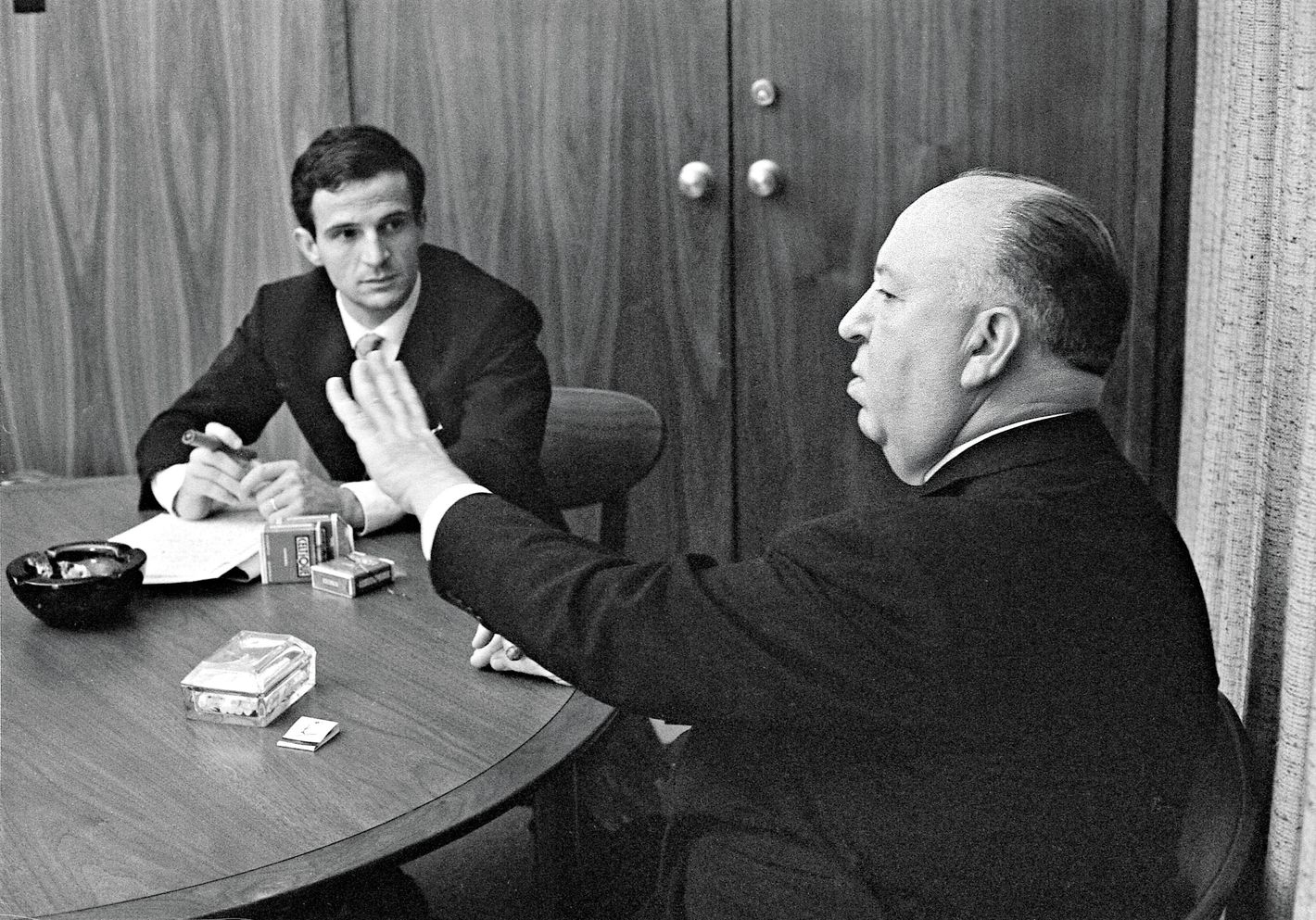

Subsequently, each time you visited Paris, I had the pleasure of meeting you with Odette Ferry, and for the following year you even said to me, ‘Whenever I see ice cubes in a glass of whisky I think of you.’ One year after that, you invited me to come to New York for a few days and watch the shooting of The Wrong Man, but I had to decline the invitation since, a few months after Claude Chabrol, I turned to film-making myself. You very kindly agreed to postpone the interview which was conducted that same evening at your hotel. You asked us to go and wait for you in the studio bar, and it was then that, in the excitement of having watched fifteen times in succession a ‘loop’ showing Brigitte Auber and Cary Grant in a speedboat, Chabrol and I fell into the frozen tank in the studio courtyard. A few years ago, in late 1954, when I was a film journalist, I came with my friend Claude Chabrol to interview you at the Saint-Maurice studio where you were directing the post-synchronization of To Catch a Thief. In the letter he wrote to Hitchcock earlier that year, Truffaut outlined his reasons for wanting to interview him in such depth:įirst of all, allow me to remind you who I am. In late August 1962, Francois Truffaut carried out a week of all day interviews with Alfred Hitchcock covering his life and work in cinema. It occurred to me that if he would, for the first time, agree to respond seriously to a systematic questionnaire, the resulting document might modify the American critics’ approach to Hitchcock.HOME > FRENCH NEW WAVE INTERVIEWS > Hitchcock / Truffaut Interviews In examining his films, it was obvious that he had given more thought to the potential of his art than any of his colleagues. But American and European critics made him pay for his commercial success by reviewing his work with condescension, and by belittling each new film. His fame had spread further throughout the world via the television series Alfred Hitchcock Presents in the mid-fifties. Selznick during the six or seven years of their collaboration on such films as Rebecca, Notorious, Spellbound, and The Paradine Case. He was, of course, famous due to the publicity masterminded by producer David O.



In the fifties and sixties, Hitchcock was at the height of his creativity and popularity. Young people who are just discovering his art through the current rerelease of Rear Window and Vertigo, or through North by Northwest, may assume his prestige has always been recognized, but this is far from being the case. “Nowadays, the work of Alfred Hitchcock is admired all over the world.


 0 kommentar(er)
0 kommentar(er)
